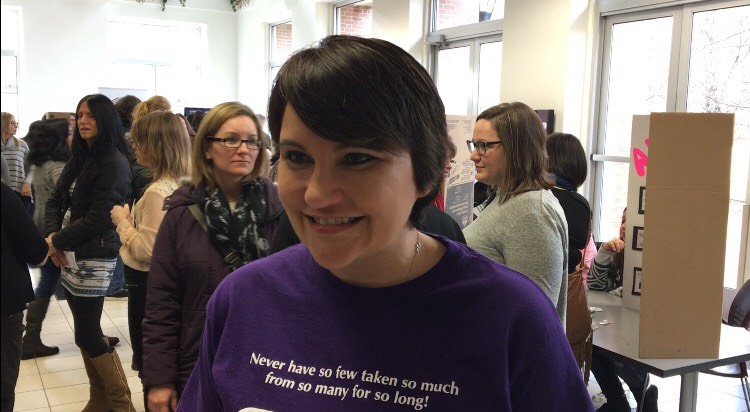St. Thomas University students in the Mi’kmaq-Maliseet Bachelor of Social Work program hosted their first social action fair on Nov. 28.
The fair took place in James Dunn Hall and celebrated student engagement in social issues that concern them and their respective indigenous communities, something professor Tracy Glynn said went well.
“The students spoke from a place of experience on the social problems facing their communities,” she said. “They spoke about root causes of the social problems, namely historical and ongoing colonial structures, and demanded change through their various calls to action.”
Along with the New Brunswick students, others from Nova Scotia, Quebec and Alberta were invited to participate as well.
Glynn said many students, professors and STU staff came out to talk to the students to learn more about how to “be a good ally in solving problems that bring us all down.”
The projects explored issues such as poverty, child welfare, the drinking water crisis, health and safety, violence against women, abortion access, hydraulic fracturing and the abuse that happened within residential schools.
Nancy Martin from Waycobah First Nation on Cape Breton Island, N.S., and Carolyn Millier from Elsipogtog First Nation in Kent County, both said the fair was “very beautiful” because it directed the public’s attention to these issues.
“It’s a timeline of all the things that had affected our people from way back when up to now,” said Millier.
The fair was a part of the curriculum for a course in the MMBSW program, one similar to the regular social work program, but is designed by indigenous people for indigenous people.
Deanna Price, a student in the MMBSW program, said an event like this is important to have because “we don’t know what we don’t know.”
“So, by raising awareness, it’s wonderful to have discussions, to have dialogue, to meet people who may not be aware, or are aware but they don’t know what they can do about it,” she said.
Price said many people came up to her during the fair and were angry about the injustice they were learning about.
“And so, that’s wonderful and the emotion is great, and so then it’s about having that conversation about what they can do, right?” Price said.
“That we can do things like signing petitions, even just having the conversation and getting involved, or then calling other communities and organizations [so] that we can work towards solving some of these social injustices.”
Glynn said this was only the first social action fair in the MMBSW program, but “many students said they would recommend that the fair be held again as it gave them an opportunity to occupy a space and have the conversations that need to be had for us all to move forward.”

